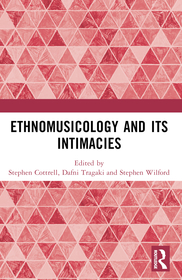
Negative Empathy in Literature and the Arts
Sorozatcím: Routledge Interdisciplinary Perspectives on Literature;
-
20% KEDVEZMÉNY?
- A kedvezmény csak az 'Értesítés a kedvenc témákról' hírlevelünk címzettjeinek rendeléseire érvényes.
- Kiadói listaár GBP 145.00
-
69 273 Ft (65 975 Ft + 5% áfa)
Az ár azért becsült, mert a rendelés pillanatában nem lehet pontosan tudni, hogy a beérkezéskor milyen lesz a forint árfolyama az adott termék eredeti devizájához képest. Ha a forint romlana, kissé többet, ha javulna, kissé kevesebbet kell majd fizetnie.
- Kedvezmény(ek) 20% (cc. 13 855 Ft off)
- Kedvezményes ár 55 419 Ft (52 780 Ft + 5% áfa)
Iratkozzon fel most és részesüljön kedvezőbb árainkból!
Feliratkozom
69 273 Ft

Beszerezhetőség
Még nem jelent meg, de rendelhető. A megjelenéstől számított néhány héten belül megérkezik.
Why don't you give exact delivery time?
A beszerzés időigényét az eddigi tapasztalatokra alapozva adjuk meg. Azért becsült, mert a terméket külföldről hozzuk be, így a kiadó kiszolgálásának pillanatnyi gyorsaságától is függ. A megadottnál gyorsabb és lassabb szállítás is elképzelhető, de mindent megteszünk, hogy Ön a lehető leghamarabb jusson hozzá a termékhez.
A termék adatai:
- Kiadás sorszáma 1
- Kiadó Routledge
- Megjelenés dátuma 2025. december 23.
- ISBN 9781032958729
- Kötéstípus Keménykötés
- Terjedelem198 oldal
- Méret 229x152 mm
- Nyelv angol
- Illusztrációk 10 Illustrations, black & white; 10 Halftones, black & white 700
Kategóriák
Rövid leírás:
It introduces the concept of “negative empathy” to examine how readers and viewers engage emotionally and cognitively with ethically troubling artworks. Through a comparative and intermedial approach, it offers a compelling new theory of aesthetic engagement with representations of negativity in art.
TöbbHosszú leírás:
Negative Empathy in Literature and the Arts explores how readers and viewers engage cognitively and affectively with ethically troubling artworks across literature, the visual and performing arts, and screen media. Drawing on aesthetics, cultural history and theory, psychology, and neuroscience, Stefano Ercolino and Massimo Fusillo introduce the concept of “negative empathy” to describe the ambivalent and destabilizing emotional responses elicited by representations of negativity in art. Rather than dismissing empathy as naïve, the authors argue for a more nuanced understanding of its darker forms and their cognitive and ethical value. Through a comparative and intermedial approach, the book analyzes case studies from Littell’s The Kindly Ones to Wilson’s Deafman Glance; from Verdi’s Macbeth and Nitsch’s Theatre of Orgies and Mysteries to Caravaggio’s Martyrdom of Saint Matthew, Mapplethorpe’s “X” Portfolio, Kiefer’s The Seven Heavenly Palaces, Haneke’s The White Ribbon, and Gilligan’s Breaking Bad—offering a compelling new theory of aesthetic engagement.
This timely contribution to narrative aesthetics revives and critically builds out from an underutilized aesthetic concept with theoretical nuance and creativity.
-Sianne Ngai, George M. Pullman Distinguished Service Professor of English, University of Chicago, USA
Ercolino and Fusillo take Lipps’ notion of negative empathy and do some serious reconceptualizing aimed at making it a key item in the aesthetician’s toolbox. The result is an illuminating, often disturbing bringing together of works in many media: from Medea to Macbeth (opera), from Caravaggio to Kiefer.
-Greg Currie, Emeritus Professor, University of York, UK
Ercolino and Fusillo cast a great deal of light on the imaginative empathy that, despite our moral distance, we extend to objectionable characters in literature and the arts. Original, analytically acute, and culturally rich.
-Garry L. Hagberg, author of Living in Words: Literature, Autobiographical Language, and the Composition of Selfhood
Stefano Ercolino and Massimo Fusillo’s study explores the dark side of empathetic responses to fiction, offering striking insights into its cognitive, ethical, and affective potential. Meticulously researched and supported by a broad range of close readings from multiple media, this book represents a major contribution to debates on narrative empathy.
-Marco Caracciolo, Associate Professor of English and Literary Theory, Ghent University, Belgium
Macbeth, Caravaggio, Marina Abramovic and Walter White – This book traces “negative empathy” from the short duration of an image, a theatre play, and a performance to the long duration of novels and TV series, introducing empathy’s conflicted sibling and demonstrating how it provokes engagement and reflective distance in audiences.
-Karin Kukkonen, Professor, University of Oslo, Norway
TöbbTartalomjegyzék:
List of Figures
Why Negative Empathy?
1. History and Theory of an Idea
1.1 Resonance and Distance
1.2 Empathetic Suffering
1.3 Identification, Catharsis, Stimmung
2. Seductions of Rhetoric
2.1 Inner Torment, Psychological Complexity, Eloquence
2.2 Brothers in the Night: Jonathan Littell’s The Kindly Ones
3. In the Rhythm of the Scene
3.1 Tragic Lacerations
3.1.1 Empathy and Estrangement
3.1.2 Medea’s Theatricality
3.1.3 Repeating the Abnormal Act: Robert Wilson’s Deafman Glance
3.2 The Force of the Voice
3.2.1 The Dramaturgy of the Antagonist in Melodrama
3.2.2 A Broken and Expressionist Song: Giuseppe Verdi’s Macbeth
3.3 Beyond Representation
3.3.1 Shadowy Actions
3.3.2 The Ecstasy of Ritual Dismemberment: Hermann Nitsch’s Theater of Orgies and Mysteries
4. Nostalgia and Anguish for Life
4.1 The Power of Images, the Power of Empathy
4.2 Stimmungseinfühlung
4.3 Abstraction against Empathy
4.4 Embodied Vision: Caravaggio’s Martyrdom of St. Matthew
5. The Multiplied Gaze
5.1 On Medusa’s Side
5.1.1 The Frozen Moment
5.1.2 Power Games
5.1.3 Aestheticizing the Extreme: Robert Mapplethorpe’s “X” Portfolio
5.2 Labyrinths of Perception
5.2.1 Immersive Environments
5.2.2 Among the Ruins of History: Anselm Kiefer’s Seven Heavenly Palaces
6. Audiovisual Simulations
6.1 In the Darkness of Their Eyes
6.1.1 Identifying with Bad People
6.1.2 Empathizing with a Community: Michael Haneke’s The White Ribbon
6.2 Serial Pleasures
6.2.1 TV Antiheroes
6.2.2 Challenging Empathy: Vince Gilligan’s Breaking Bad
Bibliography
Index
Több

Oden und Epoden
37 306 Ft
35 441 Ft

The Leaky Beak
3 817 Ft
3 435 Ft








